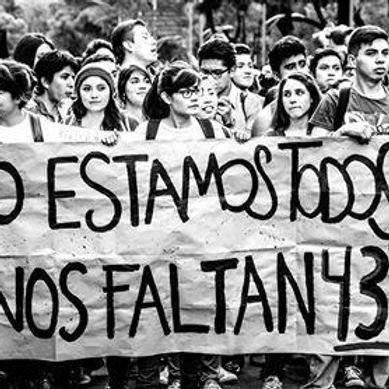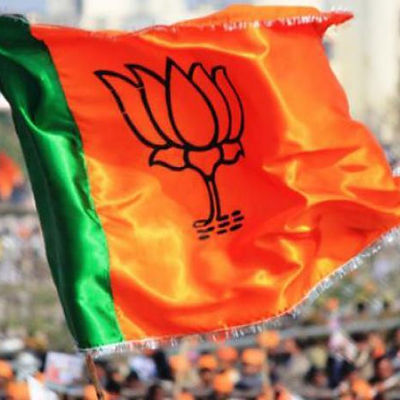
Fernando Almaguer
My Portfolio of Academic Work on Social Justice Matters:
Gender, Conflict Resolution and Peace Building, Migration, and Human Rights
Academic Work
Criminal Violence in Mexico:
Narco-Machine, Masculinity and Media
Master Thesis on Development Studies. Major in Social Justice Perspectives and Specialization on Gender Studies
July 2021
Abstract
During the past 20 years, Mexico has seen a dramatic increase in the number of violent deaths associated with organized crime, but the brutality with which these crimes are committed, has grown along. This research digs into the explanatory rationales to this social phenomenon and aims to identify the way in which mainstream media informs about criminal violence and what messages it provides to its audience. The social dispositif of the narco-machine drives the logic of the violence and empowers the perpetrators through the dissemination of their acts of violence captured in media reports, which brings along social prestige and acceptance as the ultimate enactment of masculinity. The analysis of three media reports from a single event where the military hunts an alleged cartel kingpin, identifies criminal organizations and state security forces as counterparts and complementary entities of each other. While these possess their own narrative created by the media in which they convey particular attitudes and values, they also share foundational elements entrenched in marginality, patriotism, powerlessness and gender realization.
90 minutes reading time


Politics of Representation in Ayotzinapa Case: Mourning and Membership
July 2020
Mexico held general elections in 2018 on which a relatively new political party, Movimiento de Regeneración Nacional (Morena) National Regeneration Movement won in landslide not only the presidential seat, but also obtained majority in both senate and congress, as well as in state governments. Such majority allows a never seen before level of maneuver for the president Andres Manuel López Obrador (AMLO) and his political will.
The overwhelming electoral success has a two sided explanation, first is AMLO himself as a veteran political leftist figure always publicizing honesty and frugality. But to many accounts, the popular vote favored Morena and AMLO as a punishment vote to the predecessor right wing Partido Revolucionario Institucional (PRI) Institutional Revolutionary Party that governed Mexico since 1929 until 2018 with a hiatus between 2000 and 2012 (Casar, 2018 and Navarro, 2019).
Numerous scandals emerged during the last 2012 – 2018 PRI administration, among them, 11 PRI governors are facing prosecution for major fraud charges, a millionaire mansion owned by the president’s wife exposed collusion between a construction company and the government, and many more. Yet the most prominent case of injustice in Mexico during this period is the enforced disappearance of 43 students in the southern state of Guerrero where state security forces and government officials were highly involved (Times Live, 2018). AMLO campaigned with the promise to obliterate corruption and impunity.
This essay first provides a representation analysis using historical and sociological lenses, with an emphasis on mourning politics of the Ayotzinapa 43 students case that works as an explanatory background to grasp the societal relevance of the case.
Secondly, it carries out a membership categorization analysis from the transcribed text of a press conference offered by the Mexico general prosecutor on June 30, 2020 in which he announced a drastic shift from the previous investigation and prosecution of the Ayotzinapa 43 students case. This media statement is relevant not only to the case itself, but a as vehicle of a strong political message that attempts to draw a line dividing the previous and the new administration.
18 minutes reading time

Swifting from Peace Making to Peace Thinking
March 2020
My first reaction when I started to digest the liberal peace theory was unfavorable, to say the least. It immediately brought the Washington Consensus to my memory as it is sold as a plain recipe to be followed no matter what.
The few theories that may offer an alternative do not provide me with a satisfactory answer, so I feel the need to step back and re-think what is peace and how to achieve it, even when the result doesn’t deliver a solution in itself.
I will argue that the state efforts for peace making are indeed important, but it is the role of the society self-understanding and self-healing is at the cornerstone of what will eventually bring peace.
8 minutes reading time

Towards a Hindu State: Parallelism and Islamophobia
January 2020
Decisive political developments have taken Place in India under a Hindu nationalist agenda driven by the right wing Bharatiya Janata Party (BJP) that conforms a coalition Central Government. The epicenter is Assam state, that accounts with a great ethnographic and religious diversity and decades of diverse violent conflicts (Hazarika, 2014).
The National Register of Citizens (NRC) is an official record of those who are considered legal Indian citizens. A draft version of the NRC was published in 2018 in Assam state, where 4.1 million people were excluded from the list, from which the majority were “poor, illiterate and/or members of the Muslim minority” (Perrigo, 2019). Strong criticism towards the mechanism that conformed the list forced the government to release a revised and final official version in August 2019, that left ~1.9 million people facing the threat of statelessness.
The game changer is that the demography of the excluded in the final version shifted dramatically, and the government did not predict that about the 60% of those nearly 2 million people excluded from the list are Hindus.
In response, on December 11, 2019, the Indian Parliament passed the Citizenship Amendment Bill (CAB), which the BJP announced as a pro-refugee measure as a path to obtain Indian citizenship to religious minorities, namely Hindu, Sikh, Buddhist, Jain, Parsi and Christian, from Pakistan, Bangladesh and Afghanistan. Massive demonstrations across the country have emerged, but with different claims.
Protests emerged in numerous University campuses all over India, along with an iconic protest at the Gate of India in Delhi, denouncing that the CAB hides an anti-Muslim community campaign, that in India accounts for 200 million people. The protests also called on the violent clashes between police forces and demonstrators at the Jamia Millia Islamia University in Delhi.
But in the other hand, protests in Assam state complain that the CAB would allow a massive influx of Bangladeshi Hindus into their territory would erode their language and traditions (Singh, 2019). Confrontations with the police have left five death people so far.
This is a crucial moment for the largest democracy in the world and this essay will explore on the intended or not messages behind the State actions, the aspects of parallelism that resonate with nationalism and ethnic conflict and the legitimacy of differentiation by the rule of law.
15 minutes reading time
Insights on Conflict and Peace: Rohingyas Crisis
December 2019
Most of the voices present in the simulation of the Rohingyas at Risk, as well as the media outlets reporting on the conflict, are very critical towards Myanmar for considering its military actions with genocidal intent. However, those actions are widely supported by the Myanmar’s civil society, that has a very different reading of the facts. I consider that in order to better understand the conflict and paths towards peace, Myanmar’s civil society views, and the reasons why they have these views; should not be dismissed, no matter how controversial they can be.
Within the simulation, beside Myanmar’s State Counsellor and the Myanmar Ambassador in Bangladesh, no one is frontally contesting the genocide discourse, even less defending the military actions. My character, the Chinese ambassador to Bangladesh is also not interested in either rising criticism or being too accommodating, but limiting to provide financial aid and act as mediator.
A piece is missing to better understand the puzzle. The voices in the simulation are too polarized and there’s no representation that explains the popular support for the actions that lead to the genocide.
5 minutes reading time

Sexuality and Gender Issues in Medicine Professional Education Curriculum in Mexico
July 2020
Theory and practice of medical diagnosis in the field of sexuality and gender are contentious. This paper first describes the debates of intersexed children and abortion in the Mexican context as two outlooks of controversial and relevant topics to asses to what extent these are being included in the medical professional education curriculum in Mexico and what implications it may has in the physician’s judgment and advice to the patient and relatives. A pragmatic approach to dissect the most prominent medical university in Mexico is followed with a particular focus on the angle of the indicative readings assigned to the sexuality and gender courses as well as where the latter fit in the structure of the curriculum to asses their relevance.
18 minutes reading time

Human Rights-based Approaches to Development
October 2019
The 1986 United Nations Declaration on the Right to Development brings one definition of development in the context of human rights that relates to well-being, participation and fair distribution of benefits (United Nations 1986: 1). As pointed out in the Making of Development course, these two fields often overlap in their goals.
Making use of different lenses of development, I jump to the anticipated conclusion that development is a subjective matter as it strongly varies depending on who’s talking and his/her context and reality. In contrast, Human Rights are not subjective.
While the sole outsider view of human rights seems clear, their enforcement is truly tied to an ocean of situations, legacies, cultures and contexts, hence its complexity. The human rights-based approaches to development (HRBAs) offer a range of instruments through which different actors in the international, national and local spheres will act upon.
7 minutes reading time

Mujeres Magazine Cover: María Elena Ríos
June 2020
Media Visual analysis under Violent Conflict, Media and the Politics of Representation.
Employing the media analytical tools of Categorization and Framing, this essay analyses the relationship between the viewer and the viewed and from which power position María Elena Ríos's story is viewed, told and interpreted; also identifies the salient, meaningful and memorable aspects of the case that are purposefully highlighted to transmit a perceived reality.
8 minutes reading time

Unfulfilled Basic Human Needs Leads to the EZLN Uprising
February 2020
The Ejército Zapatista de Liberación Nacional movement in 1994 in the southern state of Chiapas, Mexico is analyzed to highlight Freedom, Well-being and Survival as [some] of the unfulfilled basic human needs from a conflict academic approach as a trigger for social conflict.
8 minutes reading time


Resume
Career Milestones
Academic achievements
Academic Associate
Mexican Academy of Men's Gender Studies
Master of Arts in Development Studies
Major in Social Justice Perspectives. Specialization in Gender Studies.
International Institute of Social Studies, Erasmus University of Rotterdam. Netherlands
Trade and International Business
College Degree
School of Banking and Commerce, Mexico City, Mexico

